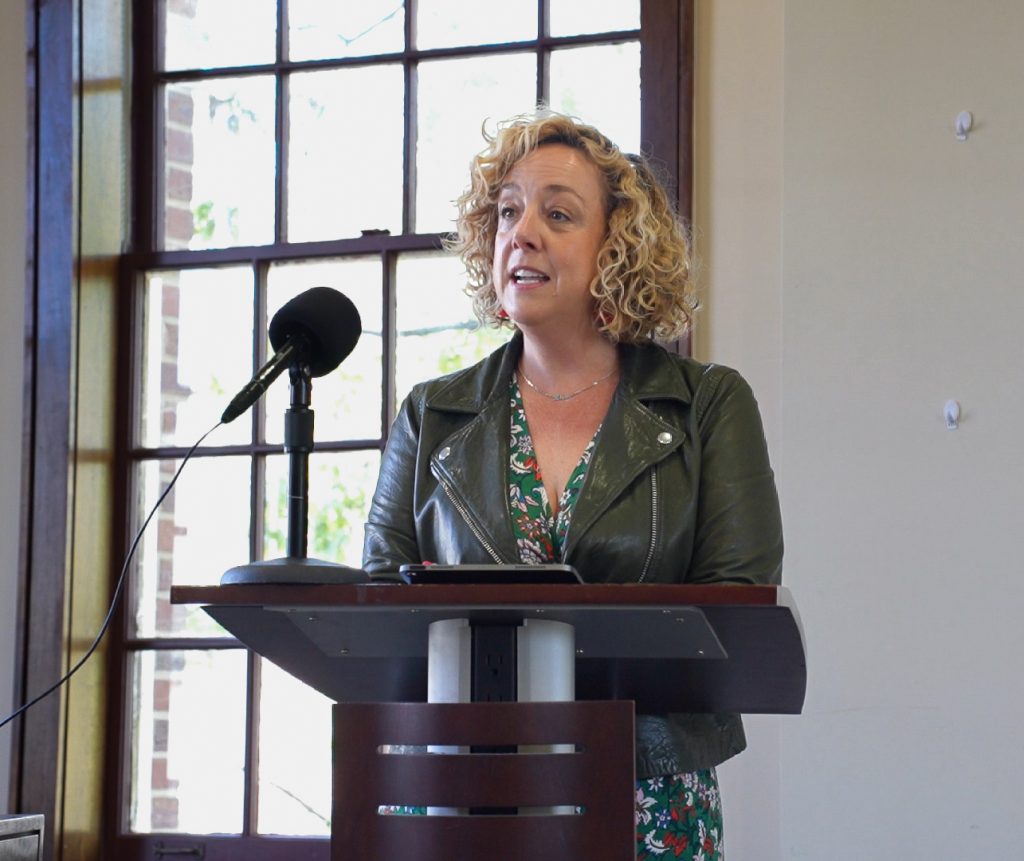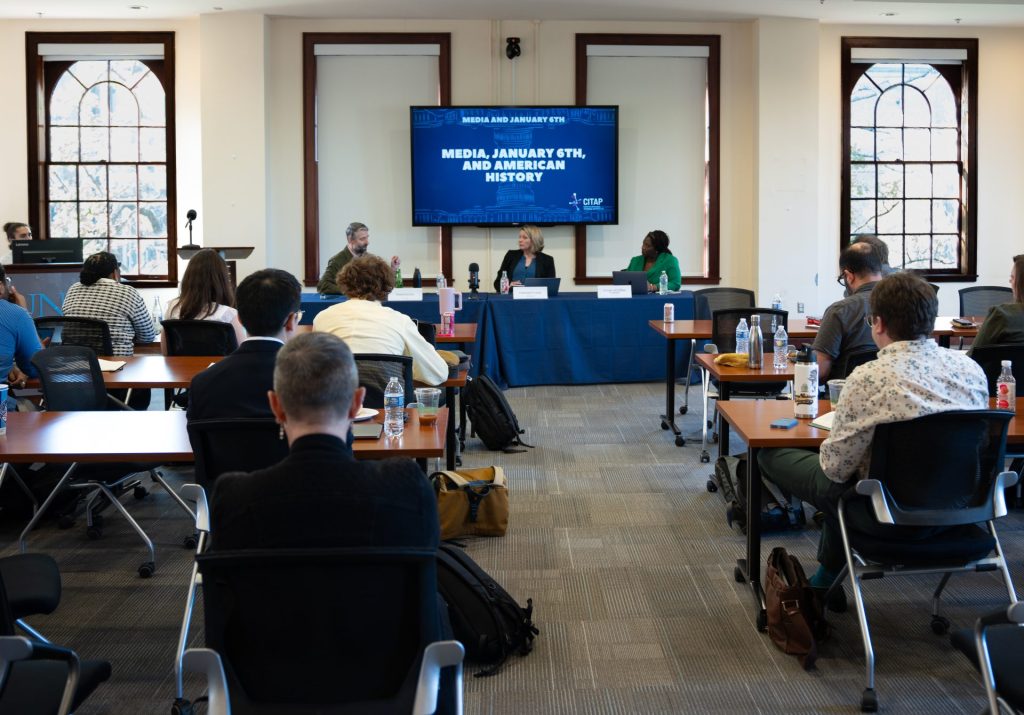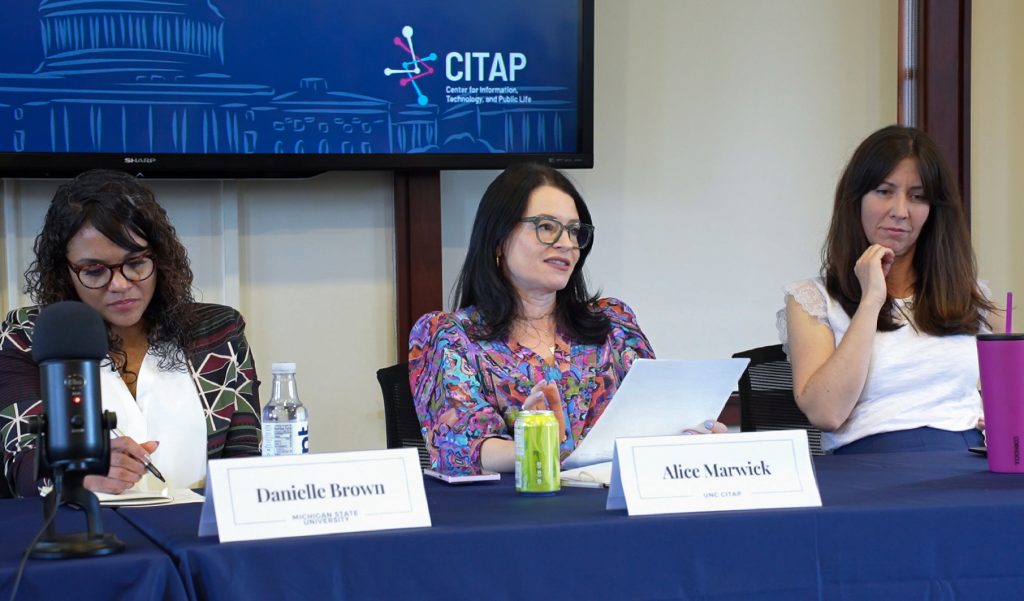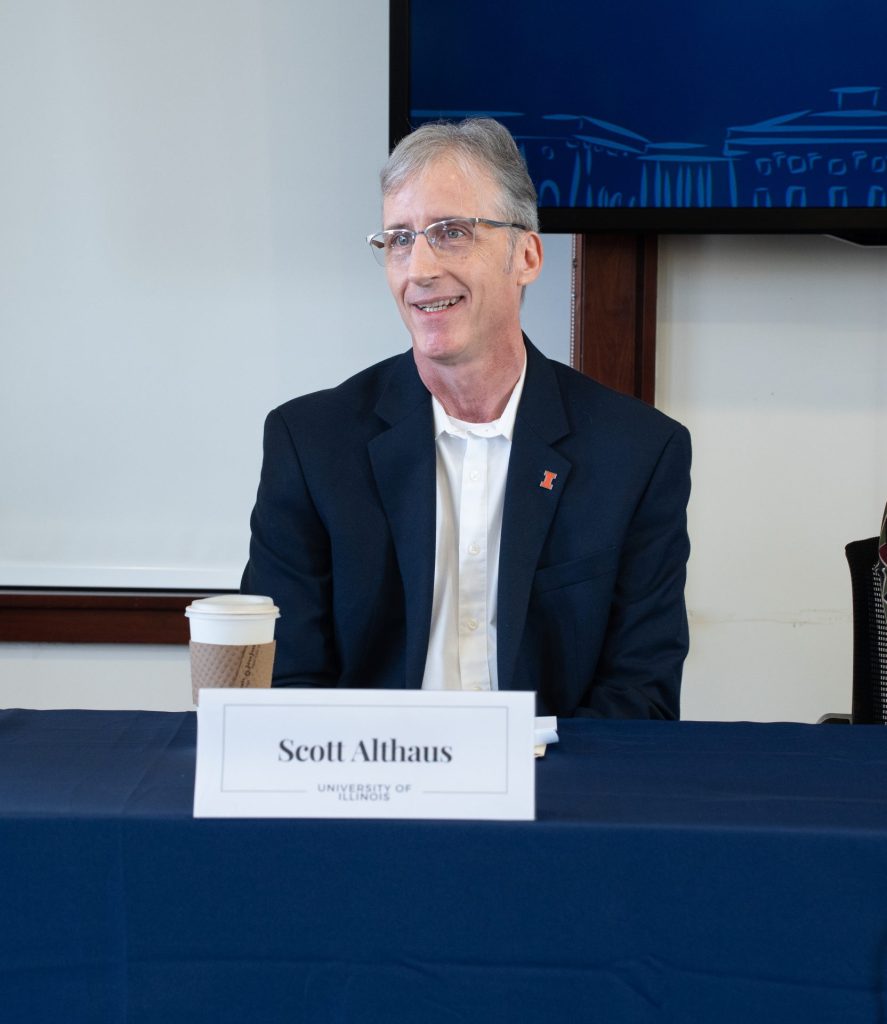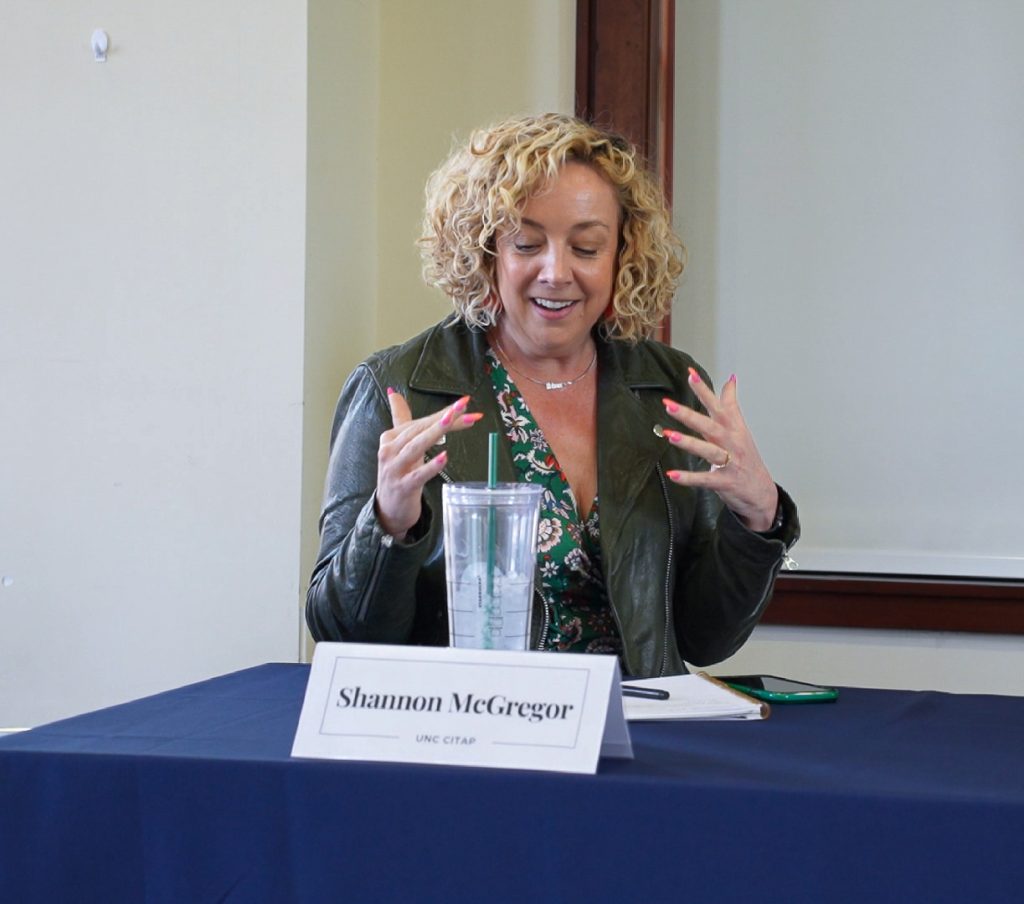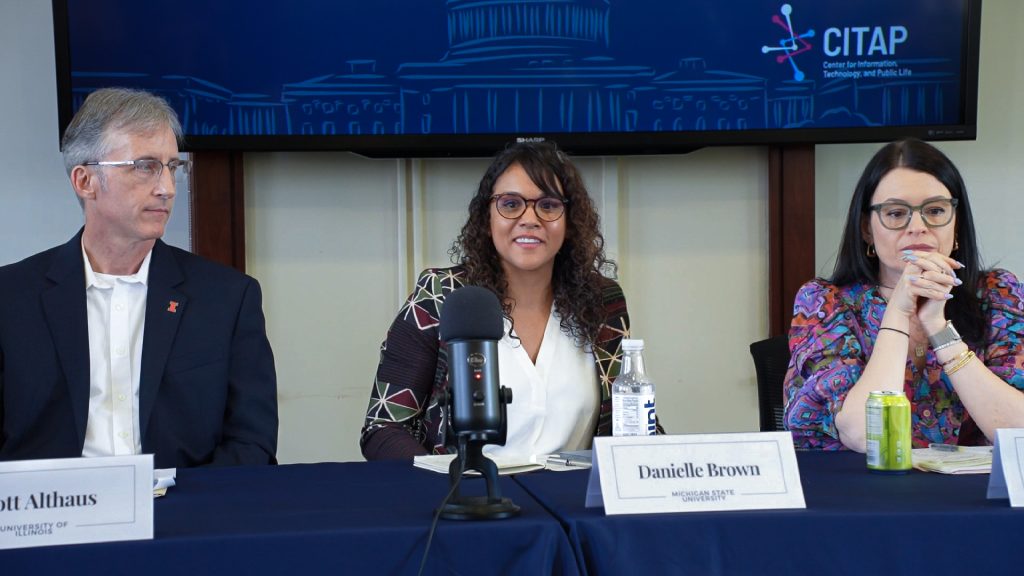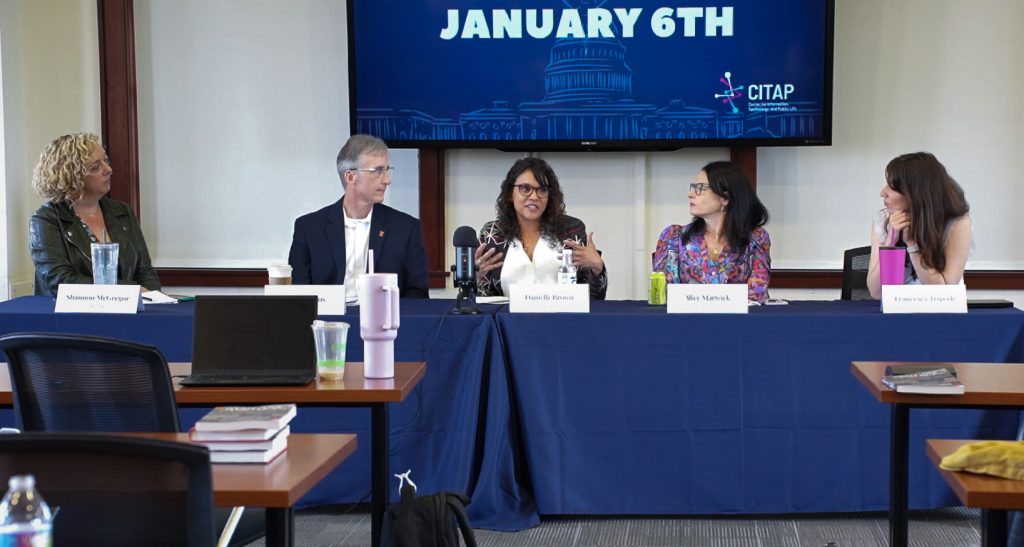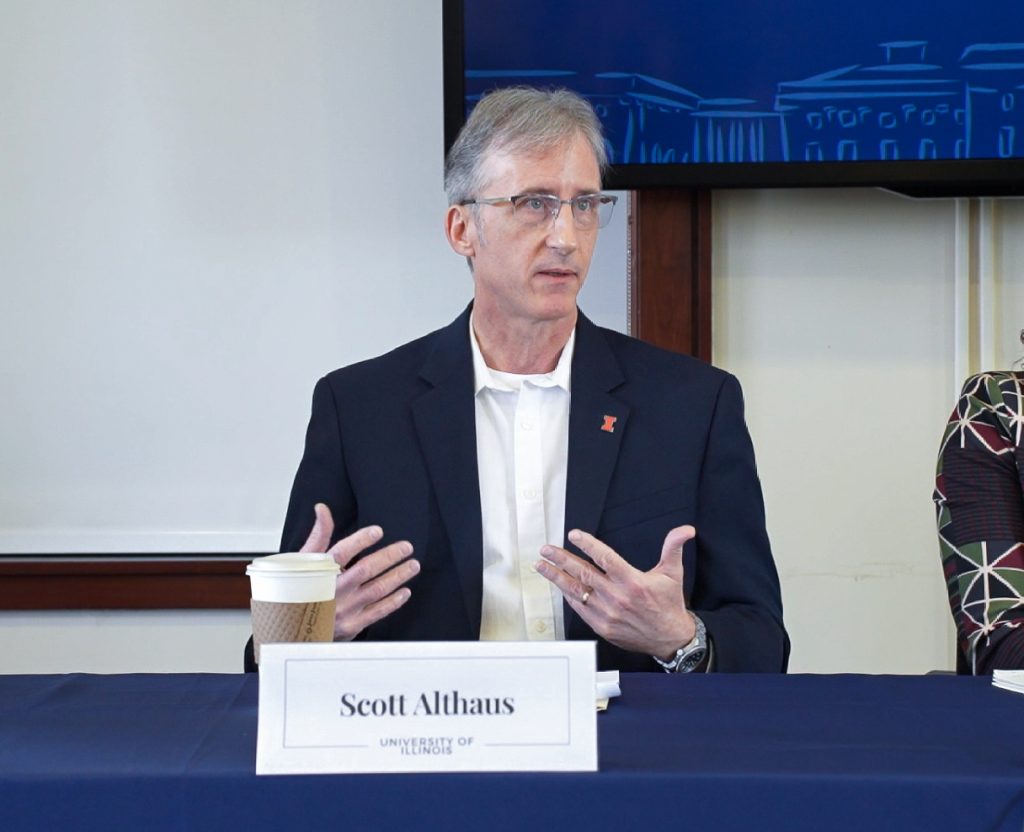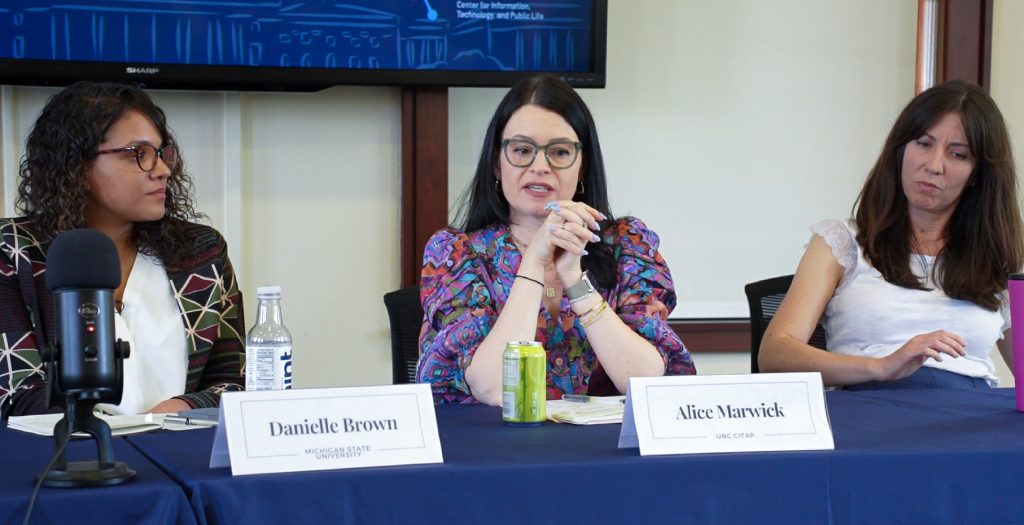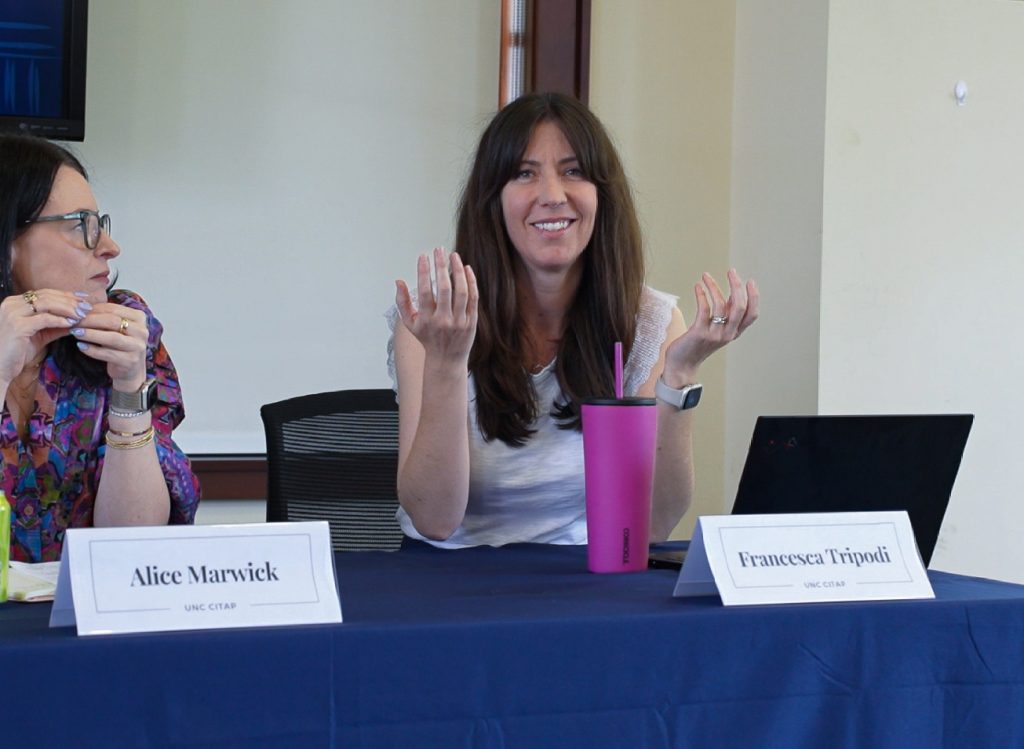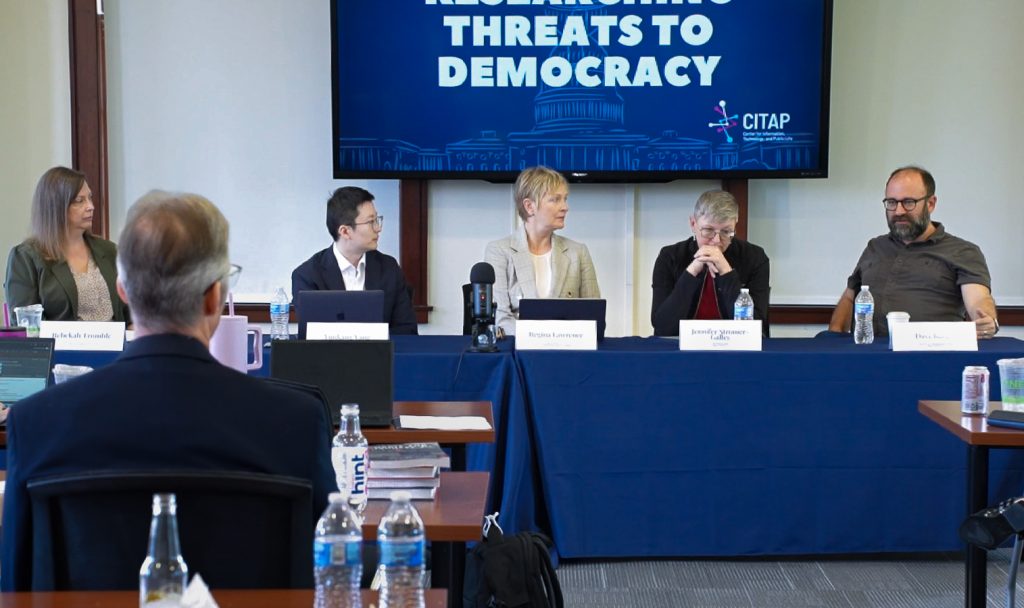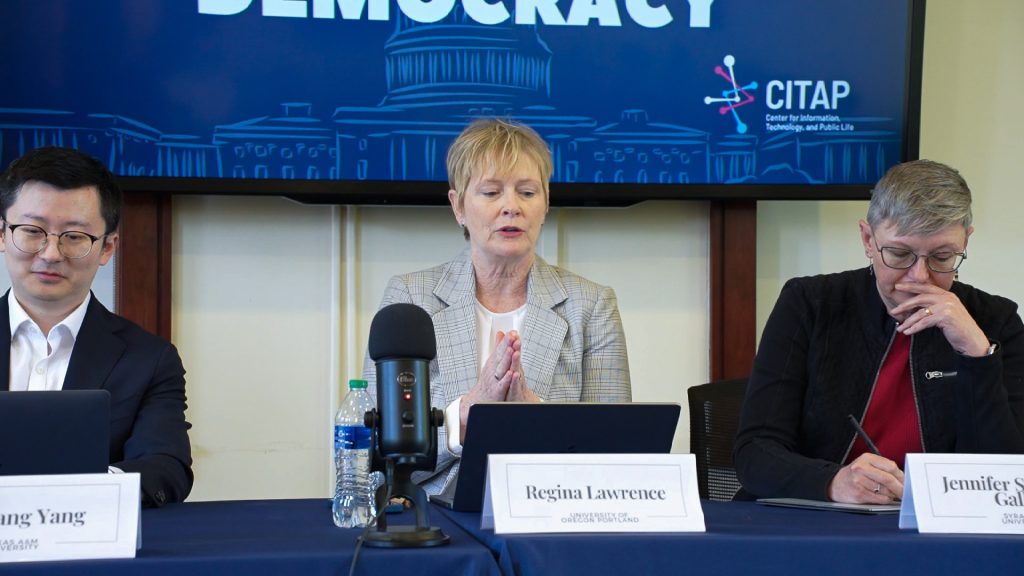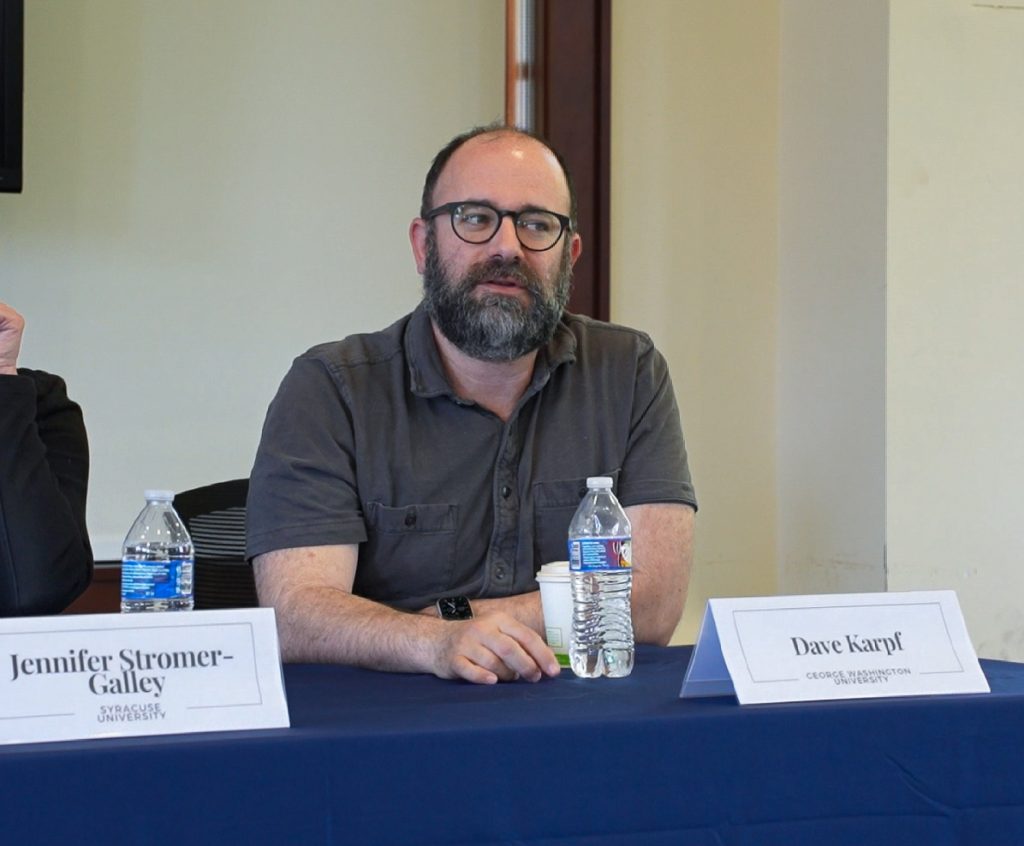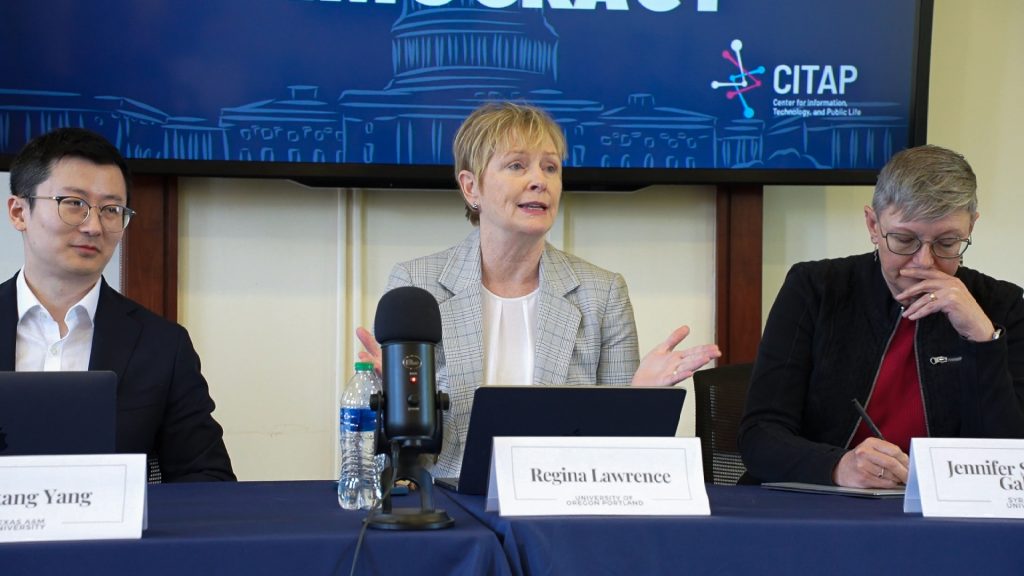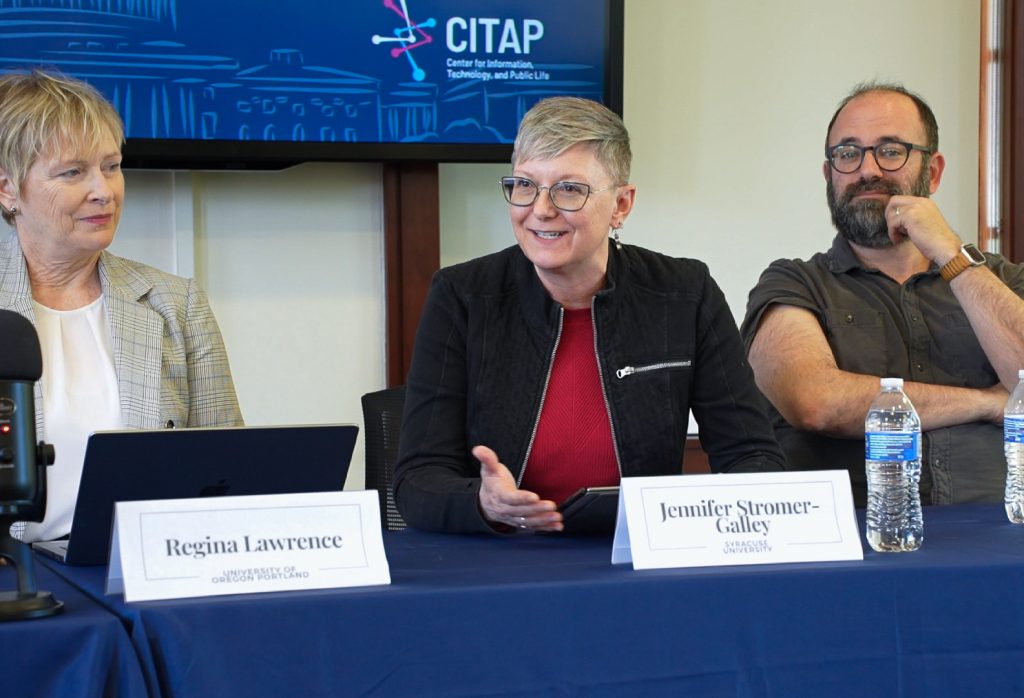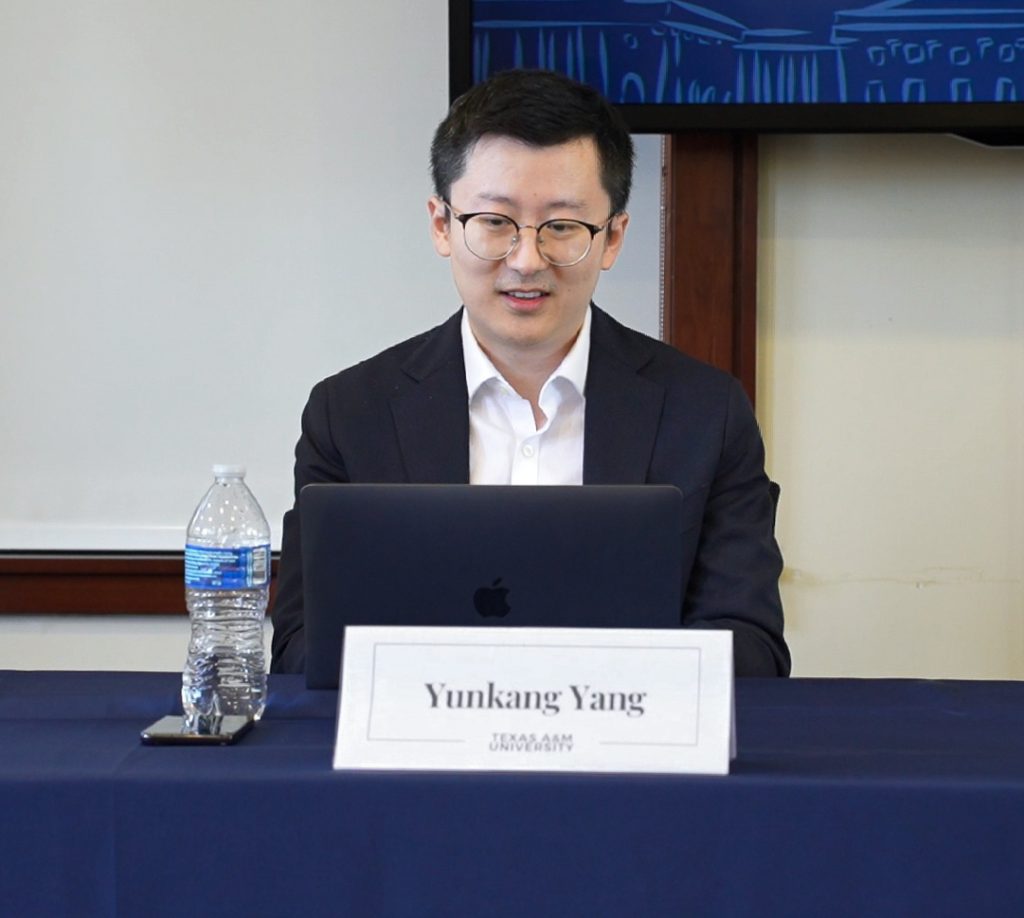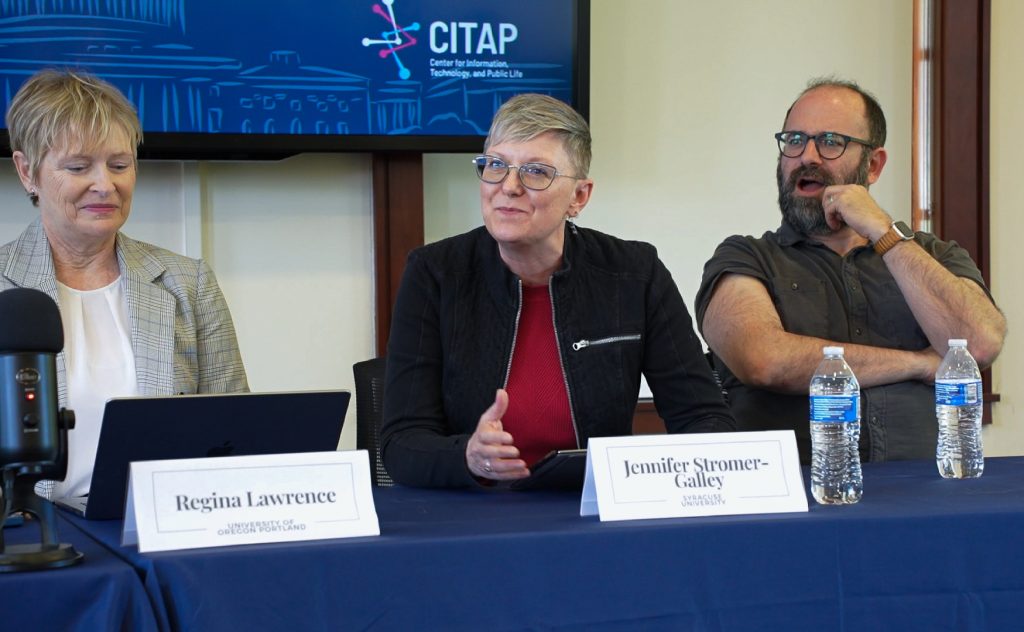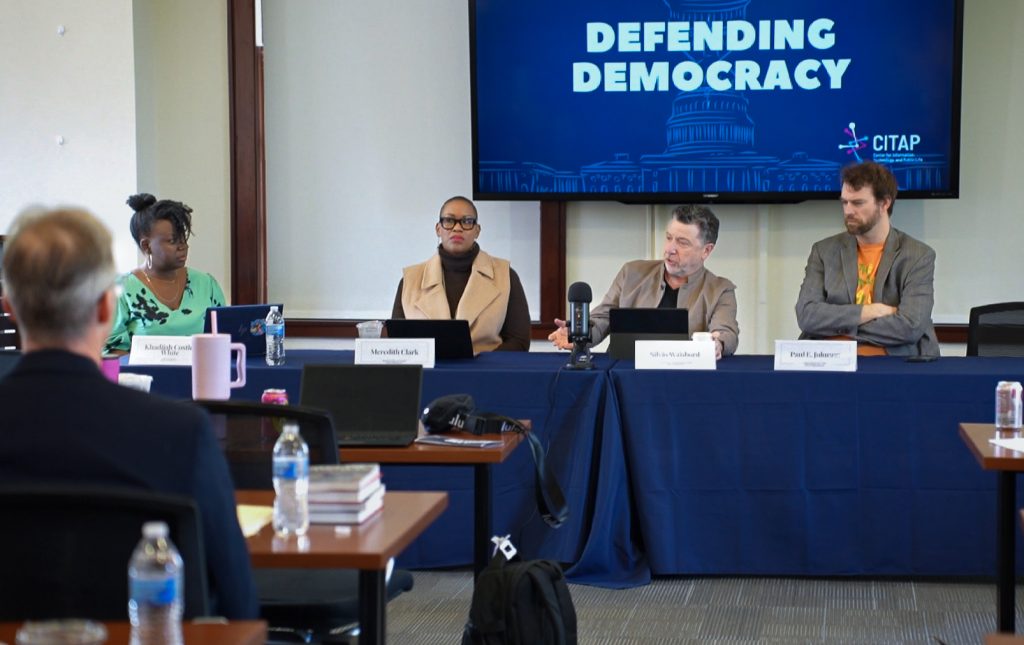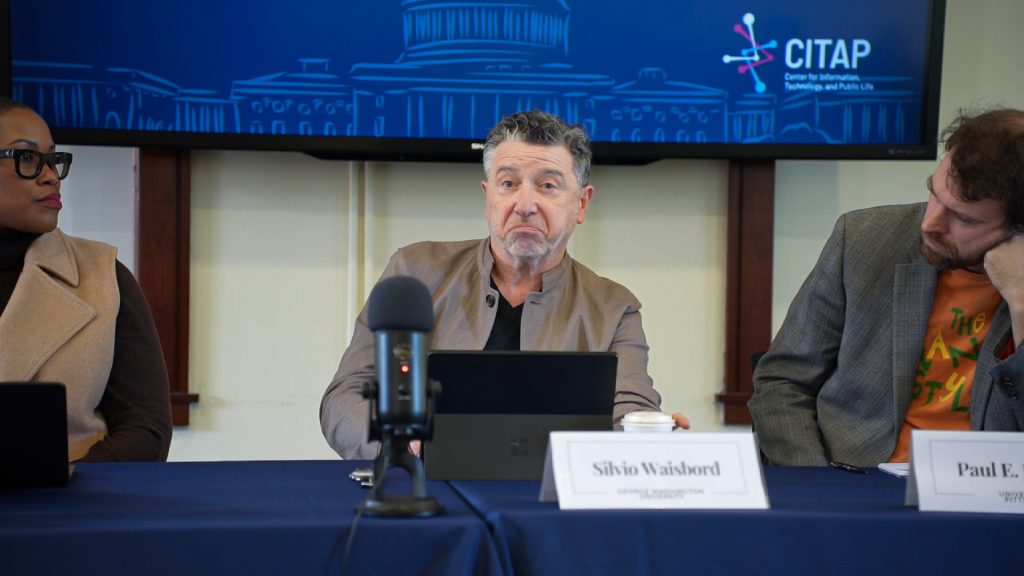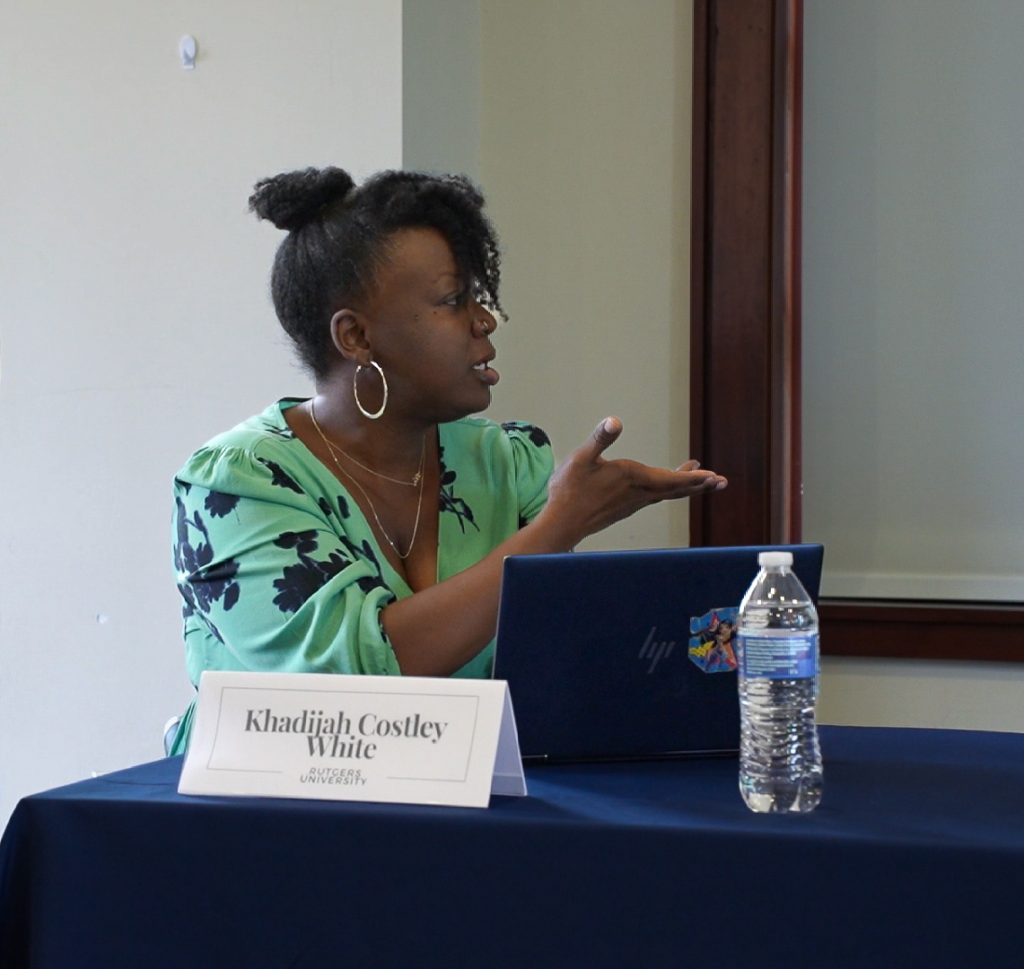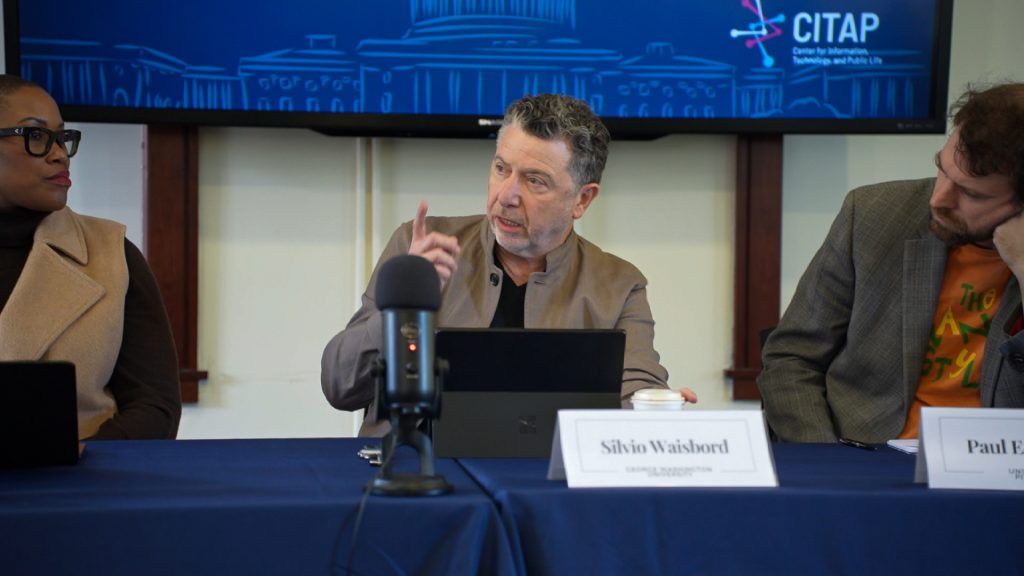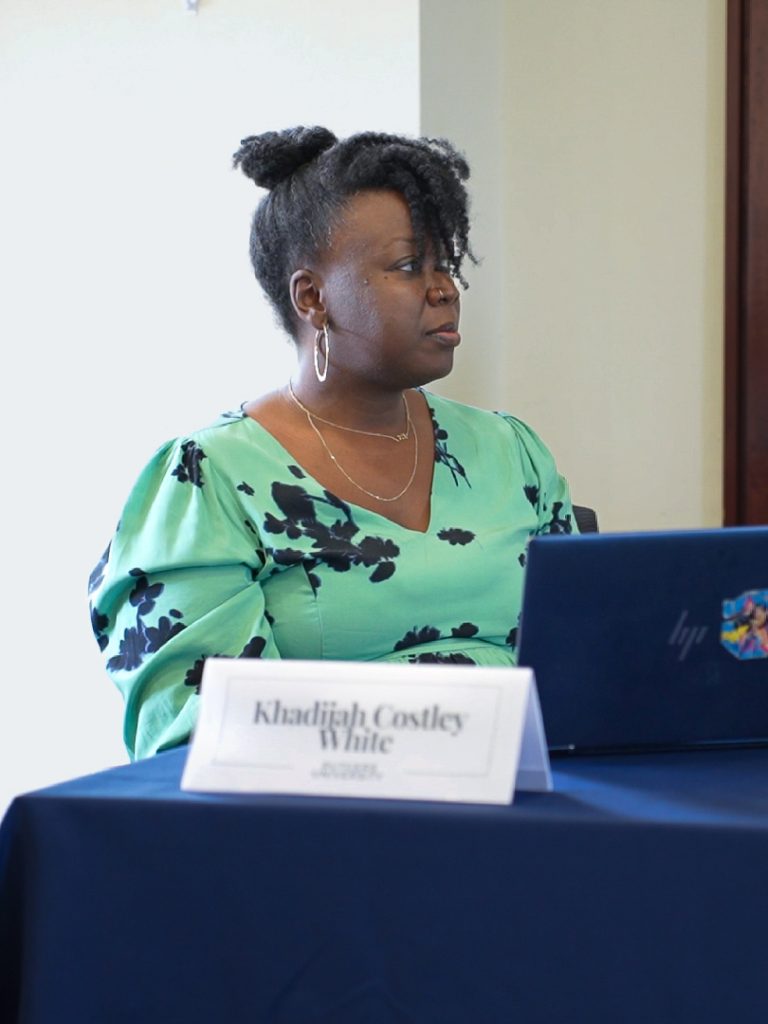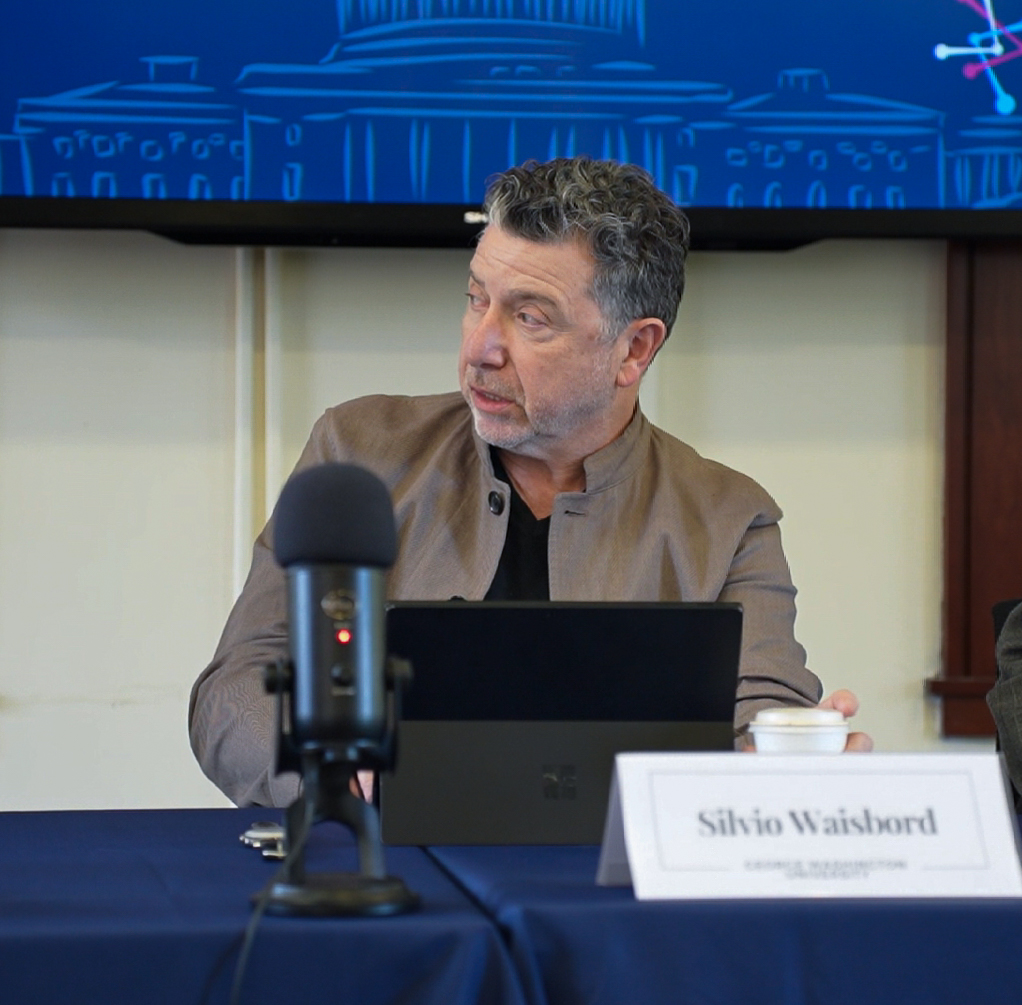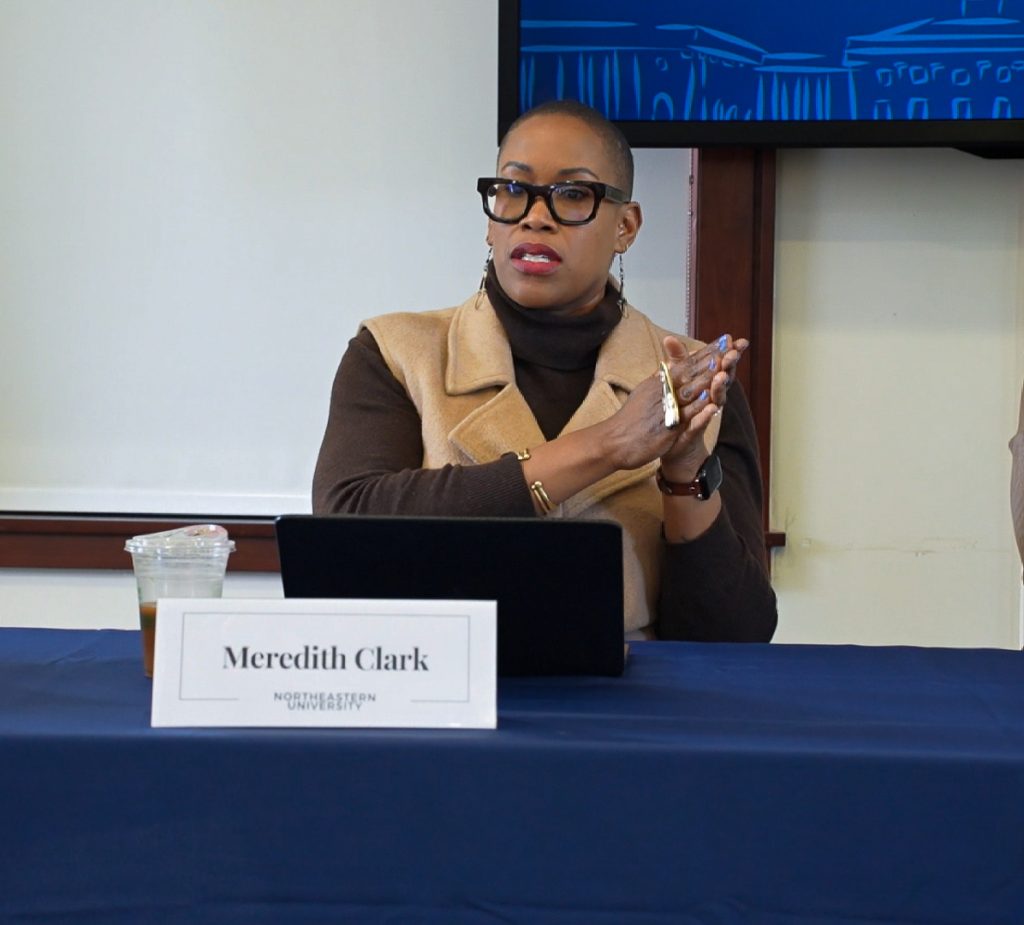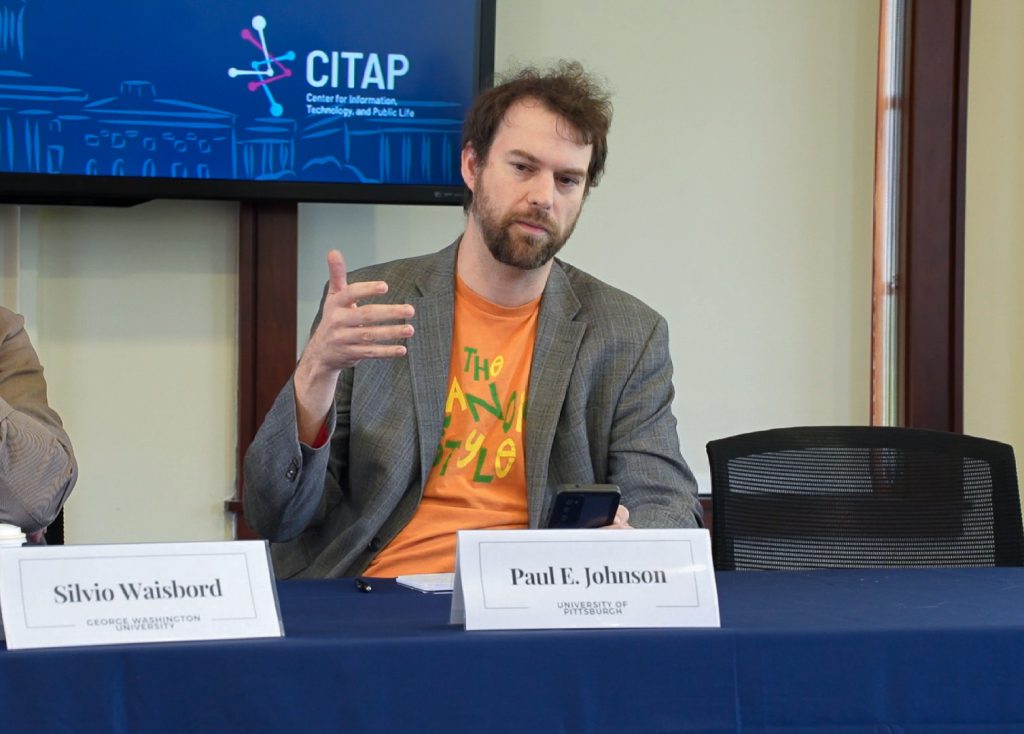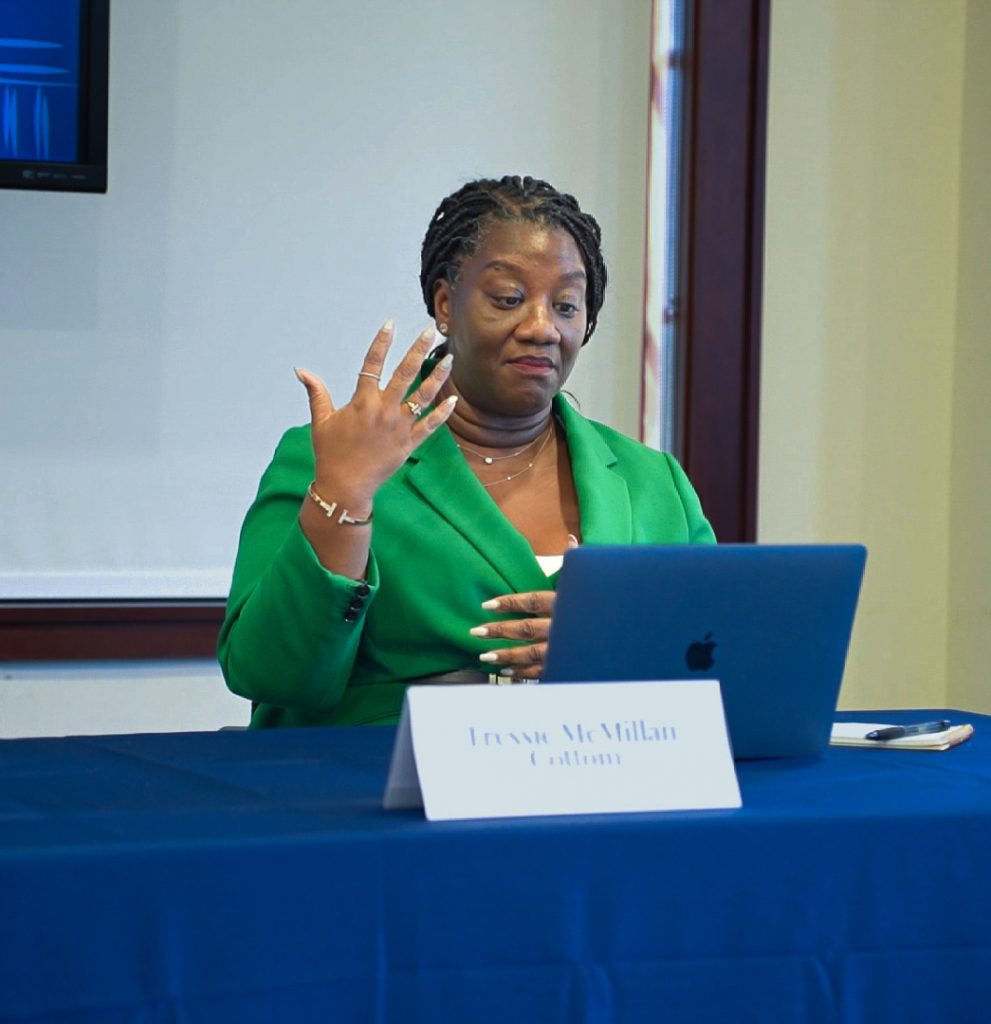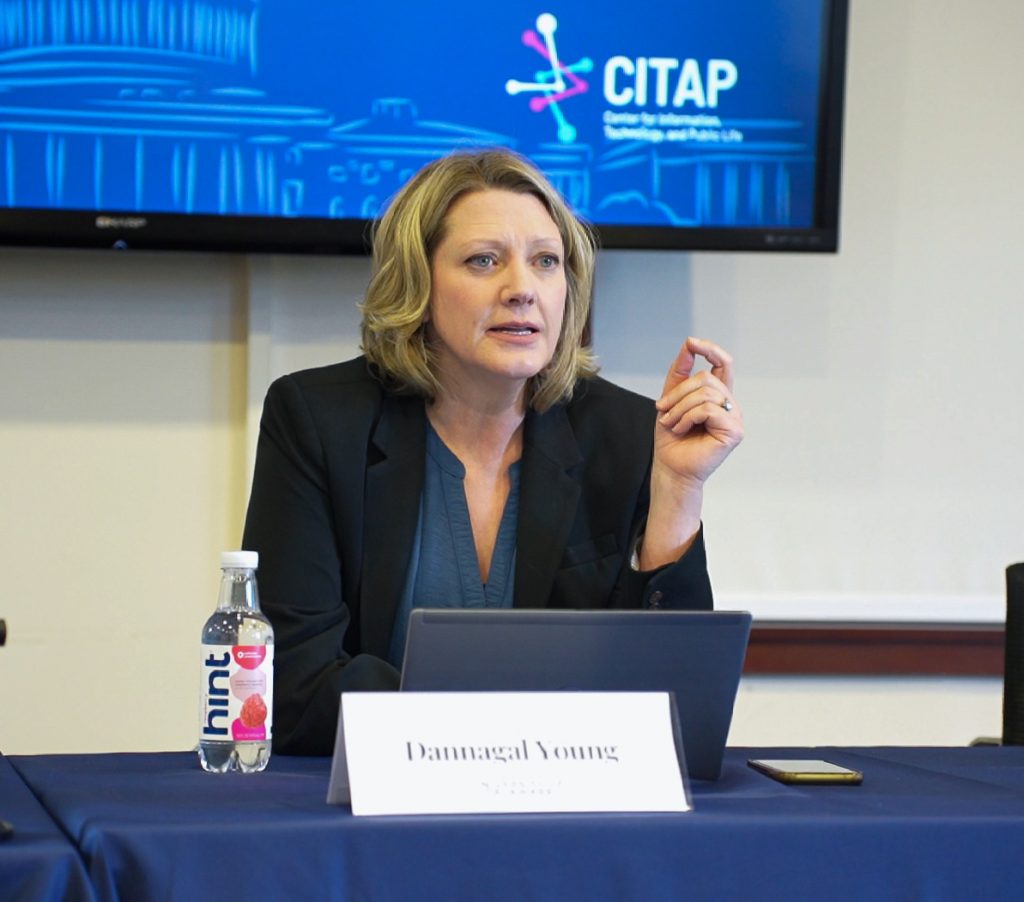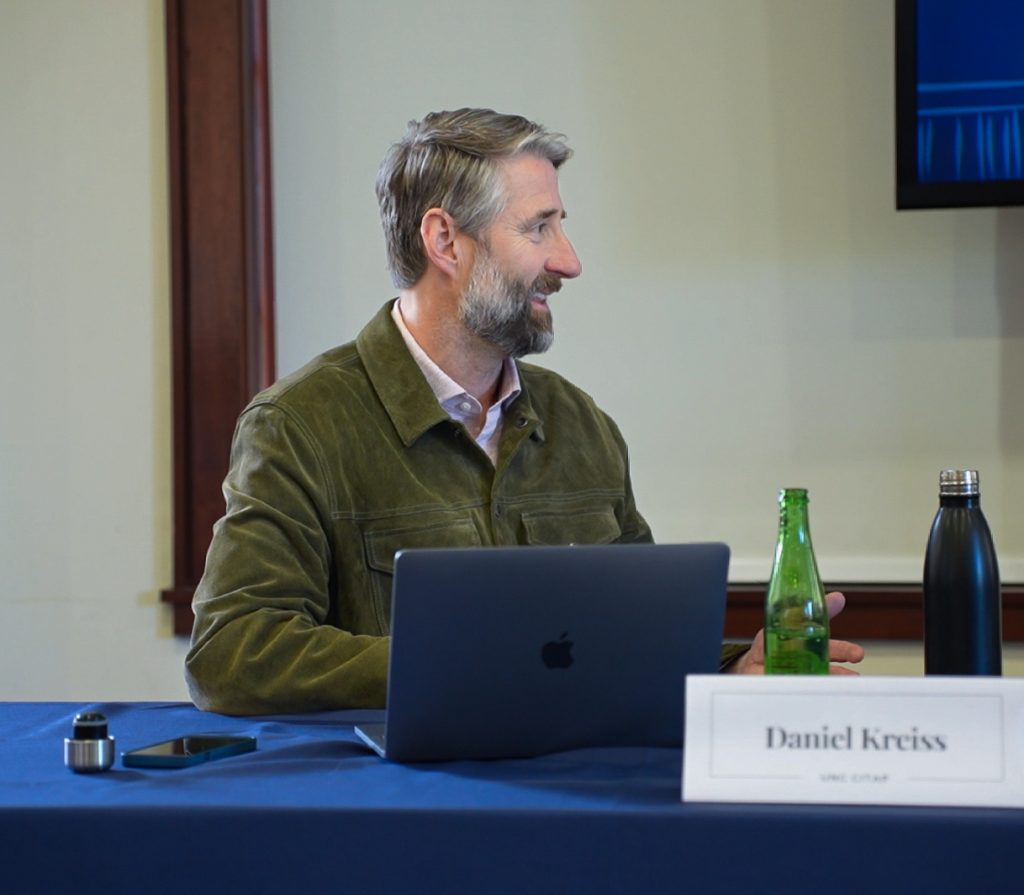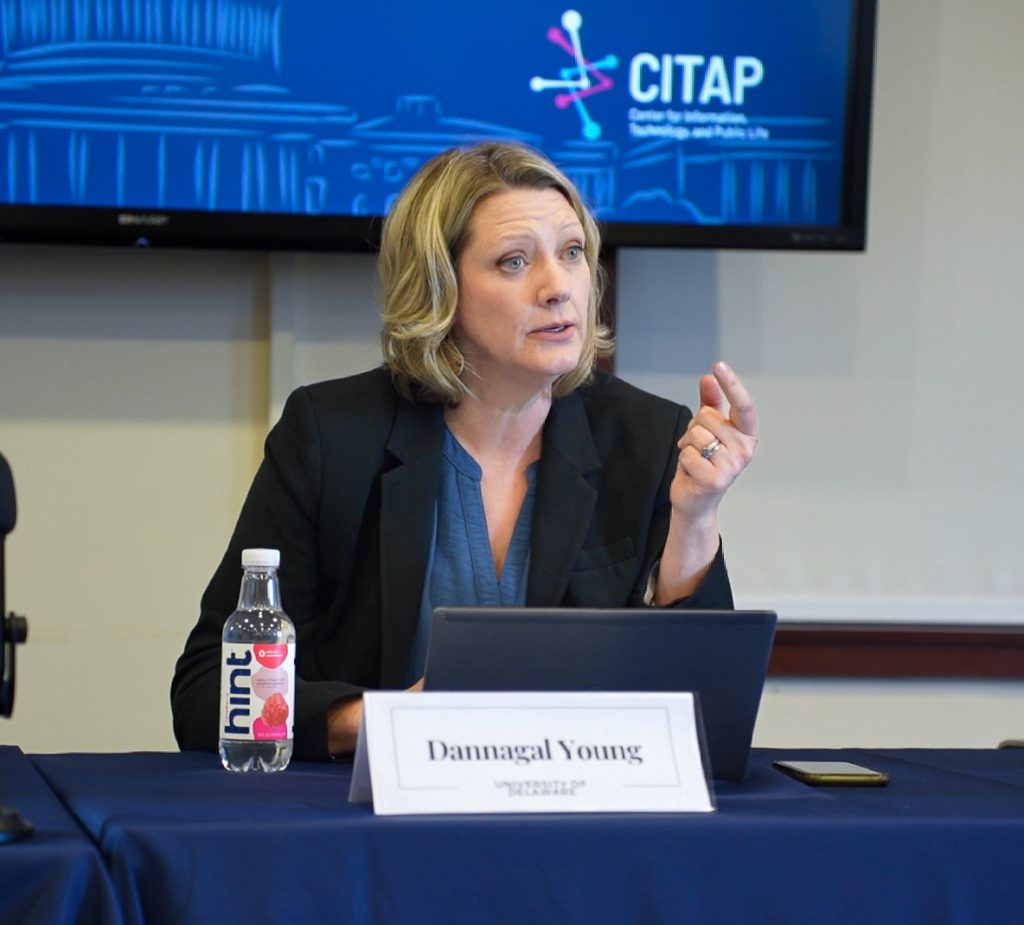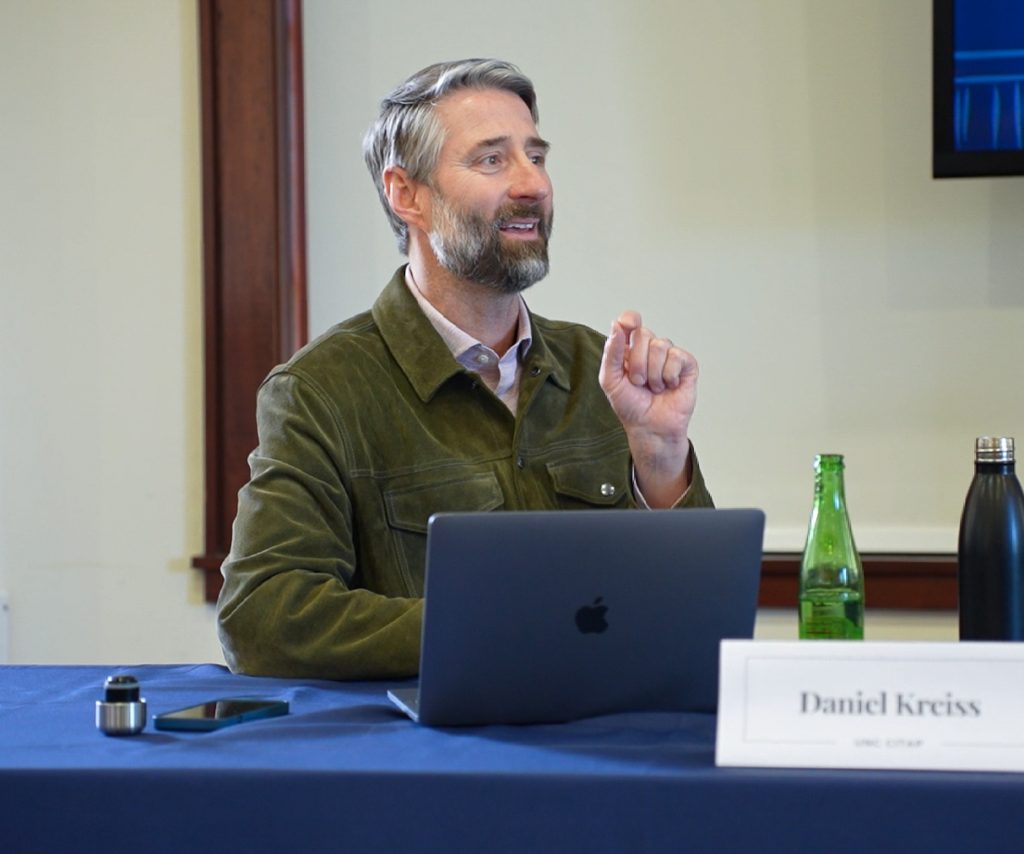
Freedom Forum, Carroll Hall | Friday, April 12, 2024 | 10am-8:30pm
CITAP hosted Media and January 6th on Friday April 12th. Thank you to our fantastic panelists, moderators, and attendees! We had such great questions and engagement from our audience that allowed for rich and thoughtful discussions all around.
Did January 6th feel unprecedented to you? Surprise! It was precedented. We learned about the historical precedent and context in each of our panels on Friday, concluding that the violence of January 6th is reflected in similar violence in American history.
See highlights from the day and recordings of each panel below.
Understanding January 6th
Hosted by CITAP Principal Investigator Shannon McGregor, the day's first panel featured Dr. Scott Althaus (University of Illinois), Dr. Danielle Brown (Michigan State University), and CITAP Principal Investigators Drs. Alice Marwick and Francesca Tripodi. Dr. Althaus shared how his team at the Cline Center for Advanced Social Research considered the events of January 6th an attempted coup according to five criteria established in 2013. Dr. Brown compared and contrasted media representations of January 6th and BLM protests and activism, calling attention to the anti-Black, racist contexts in which terms like “riot” have been historically deployed. Dr. Marwick highlights how “radicalization” as a concept emerged in a context of post-9/11, widespread Islamophobia and fear of the “Other;” as such, “far-right radicalization” misconstrues the normative, mainstream aspects of many far-right tenets. Dr. Tripodi considers how search engines can legitimate and validate preexisting worldviews, and how politicians can wield the power of search engines to organize socially harmful efforts. Dr. McGregor considers how oversaturation of the term “unprecedented” in media coverage of January 6th can lend the events a false sense of exceptionalism—something panelists note is dangerous insofar as it pushes a patriotic mythology of the contemporary American political climate rather than face reality.
Researching Threats to Democracy
Hosted by Dr. Rebekah Tromble (George Washington University), the second panel featured speakers Dr. Regina Lawrence, (Univerisity of Oregon, Portland), Dr. Jennifer Stromer-Galley (Syracuse University), Dr. Yunkang Yang (Texas A&M University), and Dr. Dave Karpf (George Washington University). Speakers emphasize the urgency with which researchers must meet this current sociopolitical moment to ensure the continued health of U.S. democracy. Dr. Lawrence asserts the attack on democracy did not end on January 6th, but was rather “a particularly conspicuous moment in a longstanding and ongoing assault on democracy.” Dr. Stromer-Galley reiterates the importance of considering the role of communication in the lead-up to January 6th, and argues former President Trumps claims of a stolen election laid the groundwork for public distrust in the U.S. electoral process, creating the conditions for the attack on the Capitol. Dr. Yang considers the role of right-wing media outlets in whitewashing and redirecting blame related to the attack on the U.S. Capitol. Dr. Karpf contends it is necessary for there to be consequences for both Capitol rioters as well as politicians and other elites facilitating the contexts in which events like those occurring on January 6th are made possible.
Defending Democracy
Hosted by Dr. Khadijah Costley White (Rutgers University), the third panel featured speakers Dr. Meredith Clark (Northeastern University), Dr. Silvio Waisbord (George Washington University), and Dr. Paul E. Johnson (University of Pittsburgh). Dr. Costley White opened the panel by imploring us to not just protect the democracy we have, but also are vigilant in recognizing the failures of our democracy both historically and at present. Dr. Clark reiterates this, noting the need to confront U.S. journalism’s legacy of normalizing the disposability of children, as well as Black death and dehumanization. Dr. Waisbord invites us to ask important questions as we work to defend democracy, including: Are we making progress? If yes, how do we know? And do enemies of democracy fear current informational approaches? Dr. Johnson considers the historical trajectory of “democracy” becoming a bad word in the U.S., how the January 6th coup is a logical extension of this trajectory, and how the journalistic and political paradox of tolerance versus how this can be abused as an anti-democratic weapon.
Media, January 6th, and American History
In the event’s closing conversation, CITAP principal investigators Drs. Daniel Kreiss and Tressie McMillan Cottom and Dr. Dannagal Young (University of Delaware) consider past conversations throughout the day, how they relate to January 6, and how we may move forward. Dr. Young discusses the demand side of misinformation, and how many turn to the “Big Lie” that the 2020 Presidential election was stolen to satisfy fundamental needs for comprehension, control, and community. Dr. Cottom underscores the importance of acknowledging that, even if participants in the January 6th coup were unsuccessful in accomplishing all of their goals, that does not mean they did not accomplish some of their aims. Dr. Kreiss recenters the long history of political violence in the U.S., and noting the continued fragility of the U.S. as a democracy that is truly accessible to all across ethnoracial boundaries.
